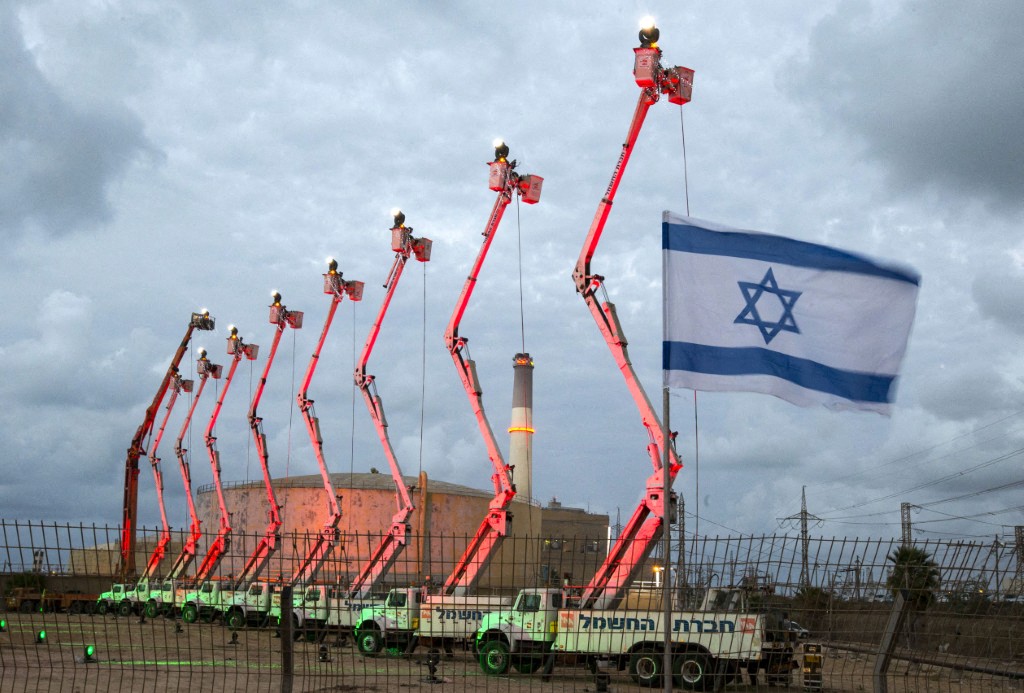A founder and high-ranking member of the Grand Unity Party (BBP), a nationalist party that supports Turkish President Recep Tayyip Erdoğan, has been selling cables to Israel’s state-owned electricity supplier, an investigative journalist has revealed, citing customs data.
Metin Cihan, who disclosed the documents, pointed out that while the BBP’s youth wing was targeting Starbucks patrons because they accused the coffee company of supporting Israel, Mustafa Semerci, one of the founders of the BBP and a member of its central executive committee, continued a profitable trade with Israel.
The trade relationship persists even as Tel Aviv’s war on Gaza continues.
Cihan shared his findings on X, identifying Pamukkale Kablo, based in Denizli, as the primary cable supplier to the Israel Electric Corporation Ltd., a major Israeli state-owned corporation. This detail emerged after Cihan examined the customs data, highlighting the company’s active engagement with Israeli entities since October 7.
Sentiment against Israel has been running high in Turkey since Israel began pounding Gaza in retaliation for an unprecedented attack by militant group Hamas in the south of Israel on October 7, which claimed around 1,200 lives and led to the taking of some 250 hostages.
As of April 6, 133 hostages remained in captivity in the Gaza Strip, 129 of whom had been abducted on October, according to Israel’s public broadcaster Kan.
The death toll in Gaza, meanwhile, has exceeded 34,400, according to the Gaza Health Ministry.
In a recent statement AKP deputy chairman Nihat Zeybekçi noted Denizli’s crucial role as a major copper cable exporter and mentioned its substantial ties with Israeli businesses.
Erdoğan’s Justice and Development Party (AKP) government, which has faced growing criticism due to its continuing trade with Israel despite the war on Gaza, recently imposed trade restrictions on Israel, in a move that has been interpreted as insufficient and overdue due to the massive toll Israel’s attacks has taken on the people of Gaza.
Six months after Israel launched its war on Gaza, the Turkish government heeded public criticism and imposed restrictions on its ongoing trade with Tel Aviv, on April 9.
The move to restrict trade came in response to Israel’s actions in Gaza and its blocking of Turkey’s attempts to airdrop aid into the region.
Zeybekçi has defended the country’s trade with Israel, saying it benefits Turkey and should be viewed independent of the conflict.
Despite Turkey’s official stance condemning Israel’s actions in Gaza, trade between the two countries has not only continued, but has even grown.
In addition to his defense of trade with Israel, Zeybekci also argued for a registration scheme rather than an outright ban on exporting certain products, which would allow for better monitoring and control of exports without cutting economic ties, according to Zeybekçi.
Zeybekçi’s comments drew anger from Turks, who took to social media to express their outrage.
The trade between Turkey and Israel, some of which is conducted by people close to President Erdoğan despite his anti-Israel rhetoric, was first revealed by investigative journalist Cihan in late November. Cihan has since then been reporting on the commerce between the two countries using official statistics and maritime traffic websites, all of which are publicly available.
Erdoğan, who long marketed himself in the Muslim world as the champion of Palestinian rights and a strong critic of Israel, has repeatedly accused Israel of being a “terrorist state” and committing “genocide” in Gaza due to Israel’s continuing attacks on the Palestinian enclave.
The ongoing conflict and Erdoğan’s condemnation notwithstanding, Israel remains an important trading partner for Turkey, ranking 13th on Turkey’s export list in 2023. Trade between the two countries totaled $5.42 billion last year, accounting for 2.1 percent of Turkey’s total exports, a decrease from $7 billion in 2022.
